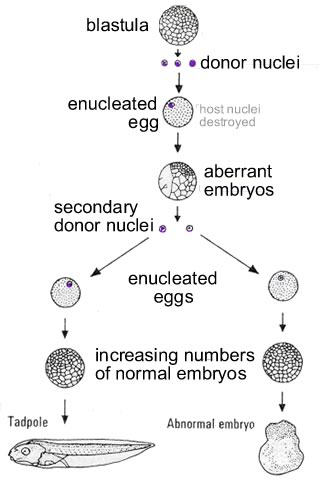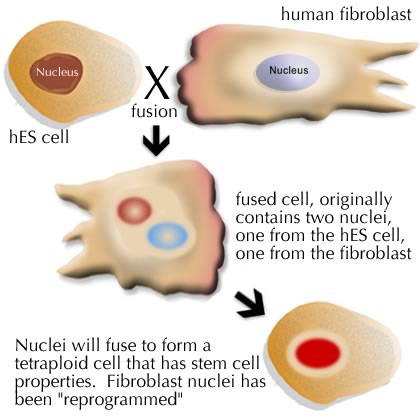The answer to your question is that scientists are working on just such an approach (among others).
The inspiration for these studies comes from work carried out in the frog Xenopus. In these experiments, carried out to determine if somatic nuclei could support embryonic development, somatic cell nuclei were transplanted into enucleated eggs.
The result was the reprogramming of the somatic nuclei. The more "differentiated" the cell from which the nucleus was taken, the more time it took to reprogram it. Often multiple rounds of nuclear transplantation were required to obtain normal embryos at high frequency.
A similar approach has recently been explored by Cowan et al (2005. Science 309: 1369-1373). Instead of nuclear transplant ion, Cowan et al fused human embryonic stem cells (hES cells) with human fibroblasts, a well-differentiated cell type.

